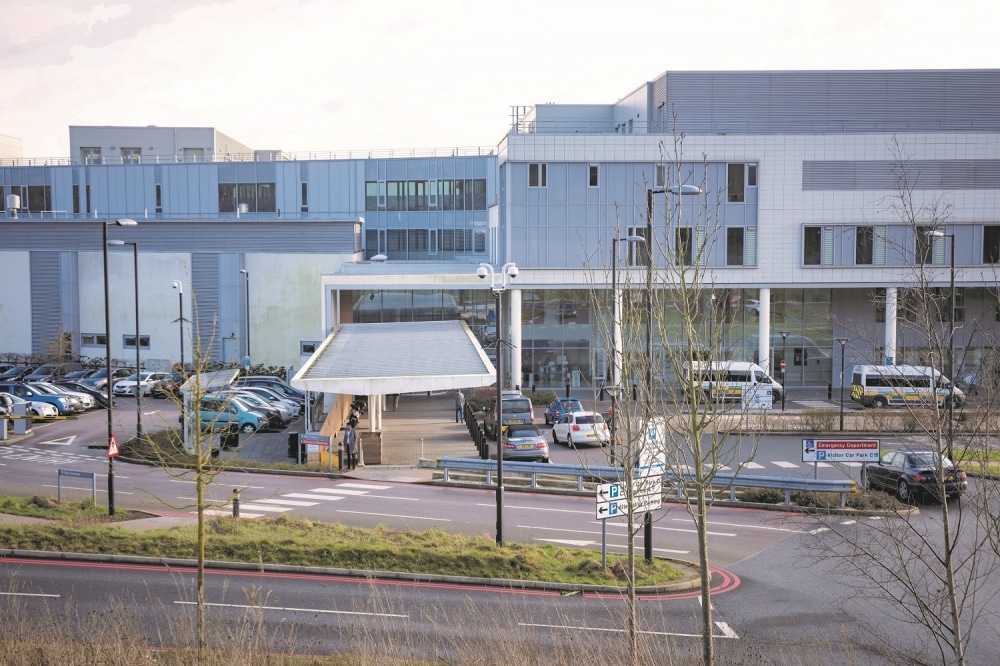The latest figures from NHS England show a nearly 2 per cent fall in February of people waiting for hip operations and other non-emergency care at Maidstone and Tunbridge Wells NHS Trust (MTW).
It follows record levels of people waiting for treatments and surgeries as a result of the pandemic.
Back in November, MTW, which runs both the hospital in Pembury and the hospital in Maidstone, saw its waiting list peak at 39,341 – the highest levels ever recorded.
In figures published last Thursday [April 14], MTW had 37,775 patients on the waiting list as of February 2022, down 1.73 per cent from January 2022.
Despite the fall to waiting lists, only 70.1 per cent of patients are being seen within 18 weeks, compared to the target of 92 per cent, but that target has not been hit since the pandemic began.
The longest waiting list at MTW is for ophthalmology, with 7,854 waiting for eye-related treatment, 35 per cent for more than 18 weeks.
However, the figures show that MTW had managed to reduce this number by 567 patients,
or 6.7 per cent, month-on-month, down from 8,421 patients waiting in January.
General surgery and the gynaecology service have the next-biggest waiting lists, with 4,163 and 4,131 waiting, respectively.
The gynaecology waiting list actually increased by 50 patients over the month – or 1.22 per cent, with 39.4 per cent waiting longer than 18 weeks.
However, MTW is beating the 92 per cent standard in cardiothoracic surgery and the general internal medicine service, both seeing 100 per cent of patients within 18 weeks. Meanwhile, in elderly medicine, 96.2 per cent are seen within this period.
The average wait time for non-emergency treatment at MTW currently stands at 11.4 weeks. Only one patient was listed as waiting for more than 52 weeks, in the ‘general surgery’ category.
The figures come against a backdrop of a new number of record of patients in England waiting to start routine hospital treatment – rising to 6.2million at the end of February.
This was up from 6.1million in January and is the highest number since records began in August 2007.
Although the waiting list has continued to grow in England, the figures also show the number of people waiting more than a year, and more than two years, have fallen.
NHS England said that despite record volumes of 999 calls and ambulance callouts for life-threatening conditions over the winter period of December to March, the service had managed to cut the numbers waiting the longest for hospital treatments.
A total of 23,281 people in England were waiting more than two years to start routine hospital treatment at the end of February, down slightly from 23,778 at the end of January.
But it is around nine times the 2,608 people who were waiting longer than two years in April 2021.
The number of people having to wait more than a year to start hospital treatment also fell from 311,528 in January to 299,478 in February.
The NHS elective recovery plan sets the ambitions of eliminating all waits of more than two years, except when it is the patient’s choice, by July and all waits of more than a year by March 2025.
MTW EMBARKS ON A RECRUITMENT DRIVE
Maidstone and Tunbridge Wells NHS Trust (MTW) is conducting a recruitment drive as the service attempts to return to normality following the Covid-19 pandemic.
The recruitment campaign will promote MTW as a leading hospital Trust, offering various job opportunities and multi-disciplinary roles, as well as training and development opportunities, including management, education and research positions. Miles Scott, Chief Executive at MTW said: “We are offering new roles in many areas to support our expanding services and recruiting staff right across the board, with a focus on clinical posts. It’s a great time to join the Trust as we continue developing our services and facilities and our people can really help play a part in shaping our future.
“We invest in training to support all staff to help them excel in their careers and take up opportunities in areas that interest them as they develop their skills. We have a fantastic team of friendly people at MTW who really support each other. We encourage health professionals looking for a new role to join us on the next stage of our journey.”
Dr Peter Maskell, Medical Director, MTW added: “We are a clinically-led organisation where decisions are informed by our clinicians, which means staff can have a big impact on how we operate. Everyone working here is committed to providing the very best patient care and they live and breathe the Trust’s values of patient first, respect, innovation, delivery and excellence.
“We offer excellent career progression. We’re a teaching hospital for doctors and have relationships with universities that train nurses and other health professionals, which boost our talent pipeline.
“We work with the Kent and Medway Medical School, and we are currently preparing to take 40 medical students for their clinical attachments in September.
“Staff at MTW can enjoy living in one of the most beautiful areas in the UK where it’s easy to have a night out in London or visit the coast for the afternoon.
“Many have relocated from London or commute from the capital. I trained here and have returned to work here. It is such a supportive, modern and forward-thinking organisation and I would highly recommend it.”
The recruitment drive, focused on clinical roles, comes at an exciting time for MTW as it has invested in a range of new facilities, service developments, training centres and digital transformation.








